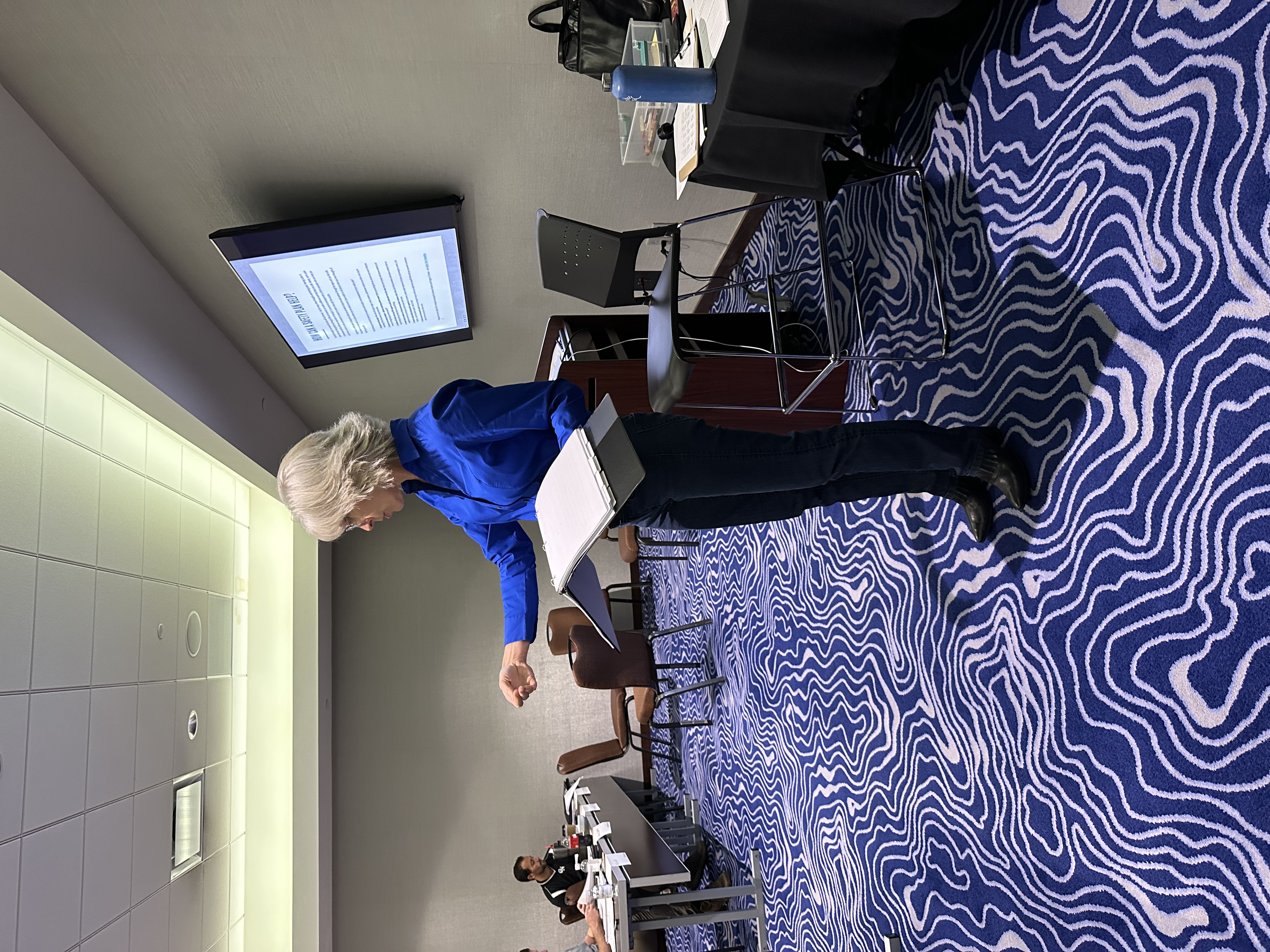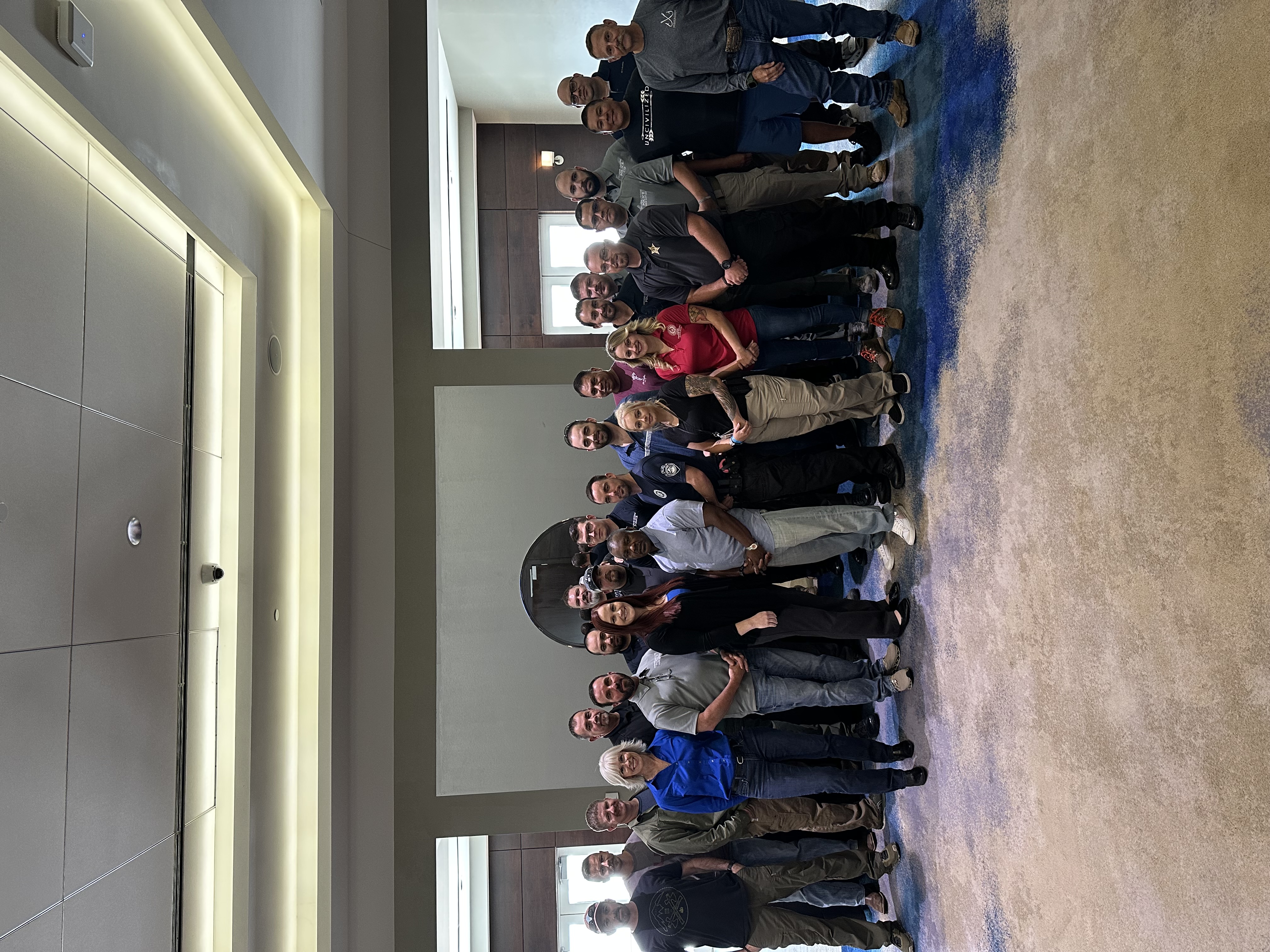Contact Us
To provide feedback on the Community Policing Dispatch, e-mail the editorial board at CPDispatch@usdoj.gov.
To obtain details on COPS Office programs, publications, and resources, contact the COPS Office Response Center at 800-421-6770 or AskCopsRC@usdoj.gov

U.S. Department of Justice
Office of Community Oriented Policing Services
Washington, DC 20530

The Muscogee (Creek) Nation Lighthorse Police Department (LHP) Law Enforcement Peer Support Team was established in July of 2023. The Muscogee (Creek) Nation (MCN) is the fourth largest federally recognized tribe in the United States, with a total population of 100,013 tribal citizens, more than half of whom live within the tribal reservation. MCN tribal headquarters are centrally situated within the Nation’s reservation in the city of Okmulgee. The service area consists of approximately 4,678 square miles of urban, rural, and very rural-remote areas in northeastern Oklahoma. Population densities vary from small unincorporated communities with fewer than 50 residents to Tulsa, one of the largest urban areas within the state of Oklahoma. This area is patrolled by 89 sworn LHP law enforcement officers. The LHP is also responsible for investigating all crimes within the reservation boundaries, from basic thefts and stolen vehicles to child abuse, domestic violence, and homicides. The Law Enforcement Mental Health and Wellness Act (LEMHWA) has identified that small, rural departments present with the highest risk of suicide and adverse mental health impacts on officers.
Many years ago, it was decided by LHP executives that we had a duty to provide our officers, administrative staff, dispatchers, etc., with the tools needed to handle the mental and emotional challenges of working within the law enforcement field. In the beginning, we sought assistance from agencies within our tribe, and we had some successes. However, we needed a program or training that truly understood what a member of a tribal police department deals with while on duty—not only what our officers and staff would deal with daily, but also their emotions after a major incident.
We also understood that we needed a program that could not only help with the on-duty stresses but also help recognize when outside influences, such as divorce, addictions, or financial problems, would play a part in the attitude or performance of the officer or staff member.

As we moved forward in searching for such a program, we knew we would be challenged in finding the right one. Officers are not always the most open, and it can be difficult for them to speak candidly with someone perceived as a stranger. Also, the culture of law enforcement doesn’t always allow for officers to simply show their feelings, and speaking about them is seen as taboo, especially in Indigenous cultures.
We realized the best program and training would have to come from someone who understood the culture of law enforcement and was intimately aware of the ups and downs of either being an officer or working with officers. Additionally, LHP is currently considered a small/medium department. Everyone from administrative staff to dispatchers are aware that the mood of the whole department can be affected when a major situation occurs in the field. If one person is going through a difficult time, then everyone goes through it together.
As we searched, we were very fortunate to find the COPS Office’s LEMHWA grant program that not only works exclusively with first responders in the field of mental health, but also provided peer-to-peer training for local agencies. The program met our criteria: worked solely with first responders, understood the nuances of being a first responder, understood that those who work with first responders are similarly affected by the things seen and heard in the field, and understood that situations outside of the job affects officers’ ability to function at a level that is safe while on duty.
The program also took into consideration not only the law enforcement culture, but also added a very relevant portion to the training: working on a tribal reservation. Working among, and being, Native American can have its own set of challenges, which were addressed during the training.
We hosted the first peer-to-peer training for tribal police/first responders on the Muscogee nation reservation, which was attended by tribal police officers from different reservations across Eastern Oklahoma. LHP believes that we can make a difference in the mental health of our officers and staff, along with their families and loved ones. We are honored to have been allowed to receive the COPS Office’s funding for not only our officers’ benefit, but also for the benefit of other Tribal police departments as well.
We are just starting the peer-to-peer program with four very dedicated officers, but we know that their drive and dedication will make our program a success, and we will continue to add other officers and staff members to the team. Our team returned from the training with many ideas of how to promote the program and assist with the mental health needs within our own department. The mentors were trained to listen to their peers’ issues and have the knowledge to help point them in the right direction for mental health assistance.
Daniel D. Wind III
Deputy Chief of Police
Muscogee (Creek) Nation Lighthorse Police
Images courtesy of Muscogee (Creek) Nation Lighthorse Police.
Subscribe to Email Updates
To sign up for monthly updates or to access your subscriber preferences, please enter your email address in the Subscribe box.






